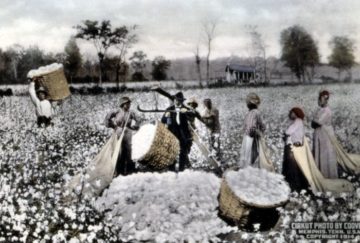Peniel Joseph in Boston Review:
 Black humanity is unexceptional, Walter Johnson exhorts. Once we have taken up the debate of humanization versus dehumanization under slavery, we have already ceded critical ground. Like Johnson, midcentury Black Power activists understood that it was necessary to redirect such questions toward the matter of how the legacy of racial slavery continues to shape citizenship, democratic participation, and human rights, not just for black Americans but for people of color around the globe. Johnson’s essay offers profitable avenues for reappraising how Black Power is the conceptual bridge between Reconstruction-era black struggles for self-determination and Black Lives Matter’s present-day fight to end martial and economic violence against people of color.
Black humanity is unexceptional, Walter Johnson exhorts. Once we have taken up the debate of humanization versus dehumanization under slavery, we have already ceded critical ground. Like Johnson, midcentury Black Power activists understood that it was necessary to redirect such questions toward the matter of how the legacy of racial slavery continues to shape citizenship, democratic participation, and human rights, not just for black Americans but for people of color around the globe. Johnson’s essay offers profitable avenues for reappraising how Black Power is the conceptual bridge between Reconstruction-era black struggles for self-determination and Black Lives Matter’s present-day fight to end martial and economic violence against people of color.
One of the most critical contributions of the Black Power movement was its searing critique of American racial capitalism. The movement’s roots in multiple strands—black nationalist, black feminist, black Marxist—of the black radical tradition formed the basis of its understanding of political revolution, community organizing, and the links between local, national, and global human rights struggles. Inspired in part by Nation of Islam theology—which holds the foundational belief that people of color are the most fully human of all—Malcolm X, Black Power’s political and ideological avatar, predicated his political ideology on the conviction that slavery’s legacy is central in shaping contemporary racial oppression.
More here. (Note: At least one post throughout the month of February will be devoted to Black History Month. The theme for 2022 is Black Health and Wellness)
